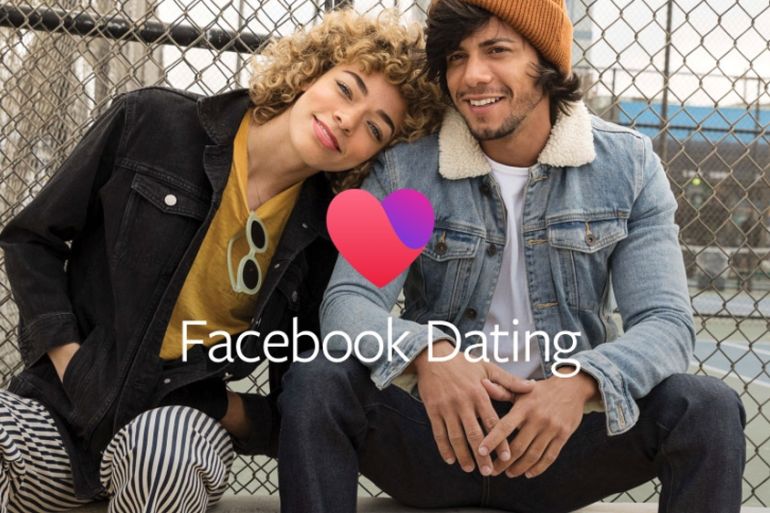Friends and/or lovers? Facebook launches dating service in US
The social network offers users potential romantic relationships, but privacy advocates fear company could mine data.

Facebook Inc has launched its dating service in the United States, the social network said, sending its shares up two percent.
Facebook Dating, a matchmaking application the company already offers in Brazil, Canada and 17 other countries, arrived in the US on Thursday. But after years of privacy missteps by the social media giant, will people trust it with their love lives?
Keep reading
list of 4 itemsHong Kong’s first monkey virus case – what do we know about the B virus?
Why will low birthrate in Europe trigger ‘Staggering social change’?
The Max Planck Society must end its unconditional support for Israel
Profiles on Facebook Dating are separate from main Facebook profiles, but they tap existing features such as events and groups – as well as the friend network to identify “Secret Crushes”.
The company said users will be able to integrate Instagram accounts with Facebook dating profiles and then also add Instagram followers to Secret Crush lists.
The service is optional for Facebook users, the company said. And users can decide who gets to see their dating profile. Regardless, dating activity by a user will not appear on one’s profile or news feed.
Shares of Match Group – which owns Tinder, OkCupid, Hinge, PlentyOfFish and Match.com – were down over four percent on the news.
Facebook expects to launch the dating service in Europe by early 2020, in addition to the 20 countries where it is presently available.
‘Built-in privacy’
For a company also developing its own digital currency and dabbling in e-commerce, love is another step toward reaching into all aspects of human existence.
Although many features resemble what other matchmaking services offer, Facebook’s version promises to be different – just as Tinder did previously with its swiping action and Bumble with its female-first messaging.
Facebook Dating, a mobile-only service that is free to use and free of ads, can still help Facebook make money if it keeps people glued to its other services longer. That is, only if users can get over concerns about privacy.
“A feature on Facebook that people don’t trust isn’t going to be successful,” said Rob Sherman, the company’s deputy chief privacy officer. “We built in privacy from the ground up.”
Tell that to Seth Carter, 32, an engineer from Terre Haute, Indiana, who tried a host of dating apps ranging from Match to Bumble, Tinder, and Christian Mingle prior to his current relationship.
“Facebook is here to make money and I get that,” he said. But he worries that Facebook’s stated commitment to privacy would ultimately buckle under pressure to make money off the service.
“That likely means they’re going to sell my dating preferences, which means even more intrusions into my life.”
Facebook claims it won’t be doing any of that. But users like Carter can hardly be blamed for their apprehension, given the company’s multiple stumbles over protecting people’s private information.
Facebook was fined a record $5bn this summer by the Federal Trade Commission over privacy violations. It’s also under scrutiny for allowing the spread of election-related misinformation and discrimination in US housing ads.
‘Meaningful, long-term relationships’
Facebook Dating comes as the popularity of online dating grows. In 2016, 15 percent of all US adults said they had used online dating services, up from virtually none in 2005, according to the Pew Research Center.
From old school sites like eHarmony to The League, a members-only service promising to bring together folks with “ambition and a drive to succeed”, there are also apps focused on farmers, seniors and the LGBT community.
When he announced the feature last year, Facebook CEO Mark Zuckerberg said Facebook Dating would be “not just for hookups” but to build “meaningful, long-term relationships”.
That appeared to be a direct swipe at Tinder, a service best known for setting people up with people they find attractive by just showing their photo, age and first name.
With Facebook Dating, users must be at least 18, rather than 13 with the main Facebook service. When you see a suggested match, you “like” someone by tapping a heart icon, or tap “X” to dislike. There is no Tinder-like swipe.
Facebook Dating will not suggest your friends, however, as people you might want to date. Facebook insists it will not use information gleaned from dating profiles for advertising.
To prevent unwanted messages, photos and spam, Facebook Dating lets you message someone just once – unless you get a response. Facebook also will not allow a user to send photos or website links, which could help cut down on unsolicited photos.
There were initial rumblings that the dating feature might be open only to people who list themselves as “single” and not those who are “married” or “in a relationship”. But Facebook has said this is not the case.
Users can also share their location with friends while on a date, a feature Facebook says has been popular in Colombia and Thailand.